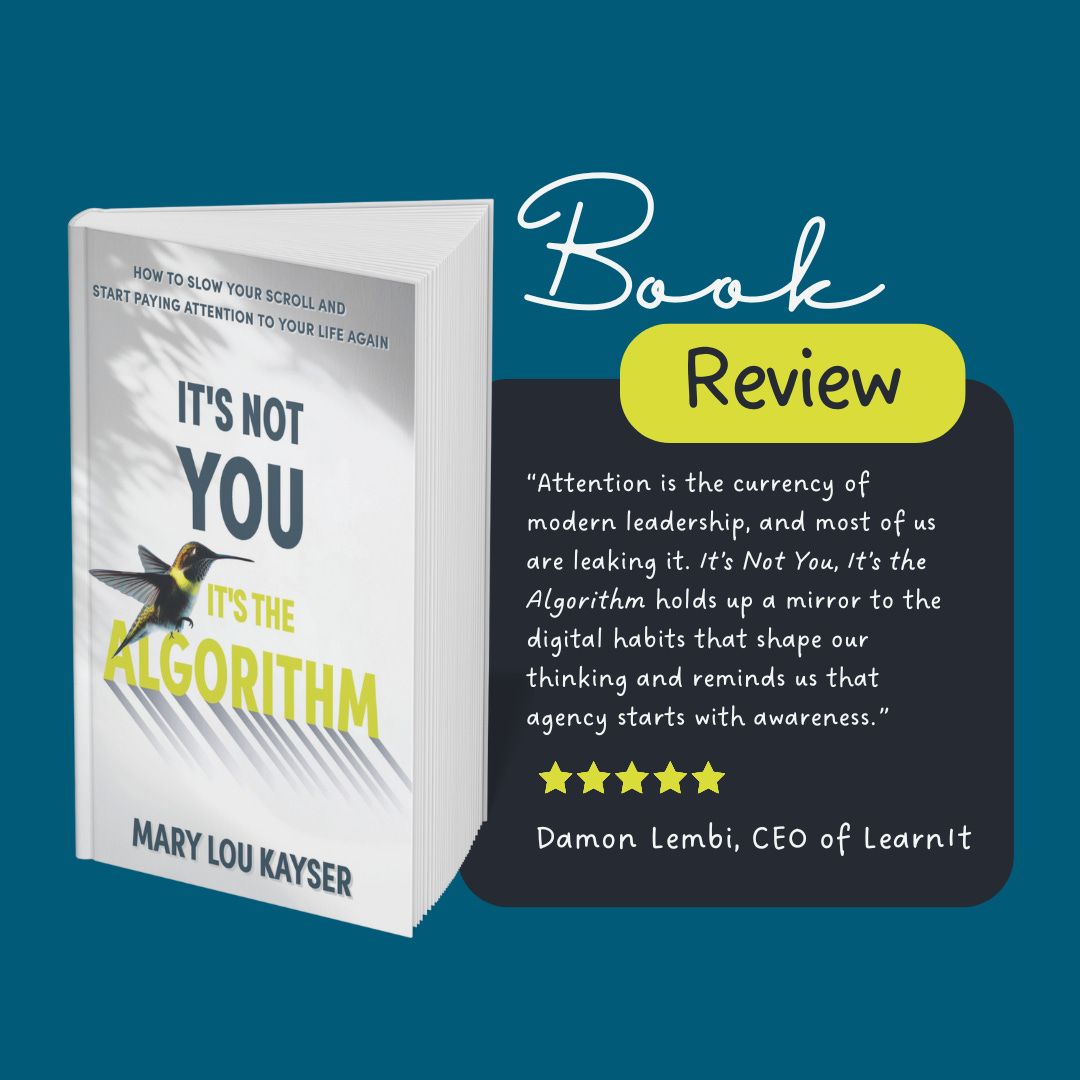The Scoreboard Is a Trick
why leaders can’t afford to let the algorithm shrink their minds

The internet convinced us there’s only one scoreboard worth watching: followers, likes, views. Numbers that collapse a full human life into a single metric. Once you start measuring yourself by those marks, the pressure to fit neatly into a category only grows stronger.
One popular approach says the only way to win big is to become a “category of one.” To carve such a sharp edge that the market instantly recognizes what you do and who you are.
The clarity pays.
The scoreboard rewards it.
The cost is rarely discussed. To be understood quickly, you have to compress yourself. To be remembered, you must simplify. Each time you trim away a contradiction or soften an edge, you become easier for the algorithm to track, package, and sell.
People were never designed to live inside a single box. We are layered, inconsistent, surprising, complex, nuanced. Human. Those qualities are what make us interesting to know and worth listening to.
Money usually wins in the short term. But if you let the scoreboard do the defining, you may wake up with a profitable category and little sense of yourself beyond it.
One of the throughlines in my latest book It’s Not You, It’s the Algorithm is this: resist being reduced. Don’t confuse financial clarity with human wholeness. The best of us doesn’t show up on spreadsheets and rarely fits inside a tidy definition.
The more pigeonholed content we consume, the more our minds begin to resemble the categories themselves. Repeated exposure doesn’t just shape what we think about—it changes how we think.
Stanford researchers found that heavy media multitaskers scored lower on tests of attention and working memory than those who limited their inputs. Constant switching trained their brains to stay shallow. At MIT, studies on decision fatigue showed that flooding the mind with endless micro-choices—swipe, click, scroll—depletes the energy needed for deeper thought.
Other work published in Nature revealed how algorithms narrow our informational diet. What begins as variety collapses into sameness. Neural pathways grow more efficient along those narrow grooves, while the wilder tracks of imagination weaken. A landscape becomes a hallway.
You can sense this shift in everyday moments: impatience when someone doesn’t “get to the point,” yelling at cars in heavy traffic, difficulty holding an unfinished idea, the instinct to look for hacks and bullet points instead of staying with a problem long enough to form your own answer.
Every scroll is a decision. Every scroll is also practice, teaching the algorithm about you, and teaching you less about yourself.
Pigeonholing, though, isn’t always a villain. Our brains need shortcuts to manage complexity. Categories help us navigate the world. Even leaders need a reputation, a throughline, a calling card. That’s how people remember and trust them.
The risk comes when someone else builds the box. Algorithms excel at reducing people into predictable signals they can monetize. What begins as harmless scrolling can end with being slotted into a role you never chose.
There’s another path: conscious pigeonholing. Choosing where to focus for a season. Allowing other identities to recede temporarily while one takes the front. That kind of clarity can produce remarkable results. The key is remembering it’s temporary. You can work in one lane without losing the rest of yourself if you remain aware of the tradeoffs.
The goal isn’t to dodge every pigeonhole. It’s to learn how to climb in and out of them on your own terms.
For leaders, the danger runs deeper than wasted time. When the brain is trained to chase clarity over complexity, it loses skills leadership requires: tolerance for ambiguity, creative problem-solving, and the capacity to hold conflicting truths long enough to discover new possibilities.
Decision fatigue shows up in boardrooms as safe bets and copy-paste strategies. Narrow inputs produce narrow outputs. When everyone absorbs the same algorithmic feed, true diversity of thought contracts even when resumes suggest variety.
This is one of the reasons I wrote It’s Not You, It’s the Algorithm. Not as an attack on technology, but as a reminder: if you don’t resist being reduced, you give away your agency without noticing. Leaders who want to build work that lasts need to guard attention as fiercely as they guard capital.
The online scoreboard is not the one that counts.
The future belongs to those who step out of the hallway and back into the open field. To those who stop outsourcing their mental diet to machines. To those willing to retrain their minds for expansive thinking, deliberate decisions, and original creation.
That is the real task of leadership now. And it’s the real task of living like you mean it.
It’s Not You, It’s the Algorithm is available now. Think of it as a field guide for leaders and creators who want to step out of the hallway and back into the open field. Order your copy here and start reclaiming the part of you no spreadsheet will ever measure.


